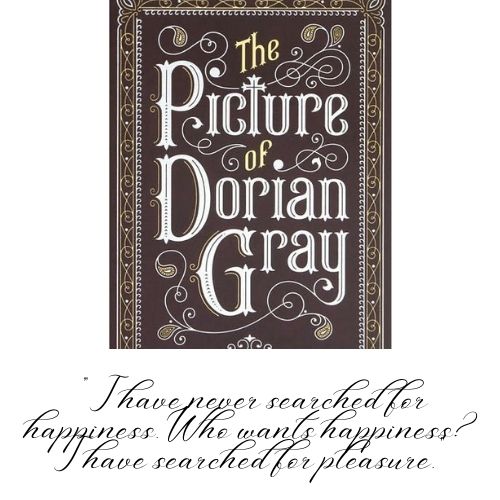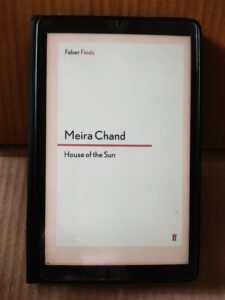Book: The Picture of Dorian Gray
Author: Oscar Wilde
Publication: Fingerprint
Pages: 256
Price: Click the link
Introduction:
I’m not sure if it is a book on art or on character or on an everlasting conflict between human vices and virtues or the pamphlet of the movement art for art’s sake. The Picture of Dorian Gray by Oscar Wilde is a fascinating phantasmagoria of the human psyche, dark and hidden. Written in Baconian prose and cryptic style the preface introduces us to the intonation of the novel though not the dark theme of it.
“There is no such thing as a moral or an immoral book. Books are well written, or badly written.”
“No artist has ethical sympathies. An ethical sympathy in an artist is an unpardonable mannerism of style.”

The Plot:
The story unfolds in the studio of the painter Basil Hallward who narrates his obsessive love and admiration for Dorian Gray, a youth of extraordinary personal beauty. He is drawing a full-length portrait of him. The novel unfurls its theme in the wider symbolism of art and humanity. Human conscience has an eternal clash with the outer world and the victory of vices over virtues mars the art, the inner beauty. Dorian, a naive soul, traverses this journey through the painting of Basil. And the painting is his awakening as well as his doom.
The Lingering tone of Intellectuality:
Yes, it is Oscar Wilde here and no one can miss the highly intellectual connotation of language and speech. Her words follow a more imperative meaning than you can assume apparently. The succinct prose, precise locution, portraying the society in the mirror of personal viewpoint all are finely lubricated to shape the artifice. The degeneration of Dorian’s character, the marred beauty of the picture or the deformity of his mentality all makes me overwhelmed through their epigrammatic approach. No one speaks too much, no one exhibit too much…all is crisp yet fulfilled. Therefore the vivid forceful prose is really impressive and idiomatic. Even the cruciality of human vulgarity is no less expressed in some pithy manner.
Dorian’s picture:
It is through his picture Dorian comes to know him. He was oblivion, he was naive. The masterpiece Basil creates through his inimitable brush strokes is Dorian, the real Dorian. when Dorian was told to look at it he was stunned at the reflection of his own beauty.
“Dorian made no answer, but passed listlessly in front of his picture, and turned towards it. When he saw it he drew back, and his cheeks flushed for a moment with pleasure. A look of joy came into his eyes as if he had recognized himself for the first time.”
And the thought of the evanescent beauty makes Dorian sad.
“Yes, there would be a day when his face would be wrinkled and wizen, his eyes dim and colourless, the grace of his figure broken and deformed. The scarlet would pass away from his lips and the gold steal from his hair. The life that was to make his soul would mar his body. He would become dreadful, hideous and uncouth.”
Till there was no picture Dorian was the Adam of Eden. But the self-portrait opens the door of knowledge…he confronts the gait and beauty of his own soul. He loses his innocence.
Lord Henry Wotton and the Mephistopheles:
If Dr Faustus sold his soul to Mephistopheles for knowledge,s Dorian sells to Lord Henry Wotton or Harry for his youth. Harry is a good acquaintance of Basil. Basil knows the misanthropic, cynic and playboy mood of Harry. That’s why he was afraid of his influence on Dorian as Dorian’s ingenuous heart was easily gullible. Though Harry was apparently innocuous his hedonistic attitude, tremendous human apathy, and cold-blooded atrocity damned Dorian.
Basil requested him not to cast his dark shadow on him.
“Don’t spoil him, don’t try to influence him. Your influence would be bad. The world is wide and has many marvellous people in it. Don’t take away from me the one person…”
But Basil’s entreaty made it more fun for him. He accepted it as a challenge to corrupt Dorian with his hideous hedonistic thoughts. Though Dorian got shocked at Harry’s ejaculation he could not withhold the vulnerable attraction to him. Basil is more mature a soul than Dorian. Yet he has to die at his hand. Basil’s wise yet blind love for Dorian cannot measure the vicissitude of Dorian’s fall.
It is Harry, who threw his disdain at Dorian’s love for Sibyl, with his misogynist’s voice:
“My dear boy, no woman is a genius. Women are a decorative sex. They never have anything to say, but they say it charmingly. Women represent the triumph of matter over mind, just as men represent the triumph of mind over morals.”
And after Sibyl’s suicide, it is Harry who doesn’t allow Dorian’s conscience to agitate and repent. It is he who leads Dorian to a selfish, epicurean world. It is he who paves Dorian’s life to a phantasmagoria of horror and mystery – Sibyl’s pathetic suicide, Basil’s murder, Alan Campbell’s suicide, and the pathetic death of James Vane and finally his own. When the Duchess asks Dorian if he finds happiness in the presence of Harry, he answers,
“I have never searched for happiness. Who wants happiness? I have searched for pleasure.”
So, Harry won the game, the bargain.
The Ending:
The novel begins with the portrait of Dorian and ends with it. Art is eternal and it is folly on the part of the human to attain that eternity. Dorian wishes to preserve his youth in flesh and blood even at the cost of the disfigured picture-Dorian. All the evils of his soul mark his portrait but his youth remains intact. That’s why he easily dupes James Vane in his revenge making him confused about his age that is not discernible.
“…the face of the man he had sought to kill had all the bloom of boyhood, all the unstained purity of youth. He seemed little more than a lad of twenty summers. But the tragedy cannot be detained. With the same knife he used to kill Basil, he stabs the picture…or himself.
when the servants entered the room they found the dazzling presence of an art piece- the picture of Dorian Gray, hanging on the wall as an epitome of evergreen beauty but on the floor, there was the dead body of a wrinkled, withered old man, stabbed at heart.
Alvina’s Verdict:
In my school days, I read the abridged story. From then I had the desire to read the novel. But it takes a long time till I one day find this copy on my dusty library shelf. It is an unputdownable stirring novel capturing variegated themes of the human psyche- vanity, extreme self-consciousness, hedonism, cold-blooded cruelty, and hypocrisy.
The way Dorian’s portrait reflects the dark soul within him and changes in the eyes of Dorian is super symbolic. Dorian represents the narcissist, hedonistic, self-absorbed selfish generation. In its dark theme, in its symbolic symbiosis with reality, Dorian Gray demands all our applause.





I like to read the novel. Oscar Wilde is my fav.